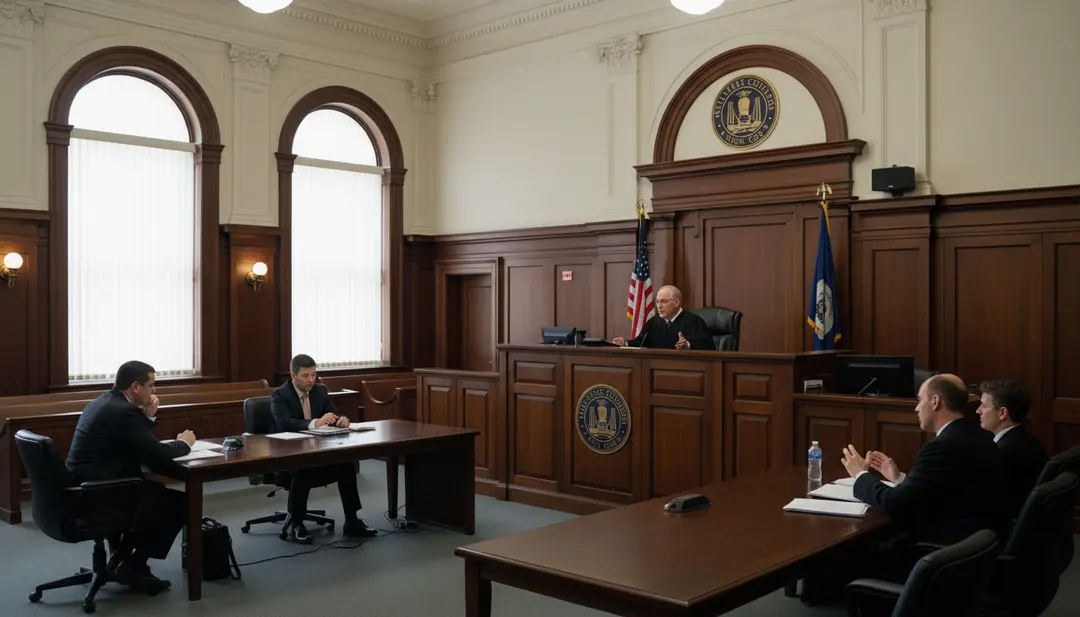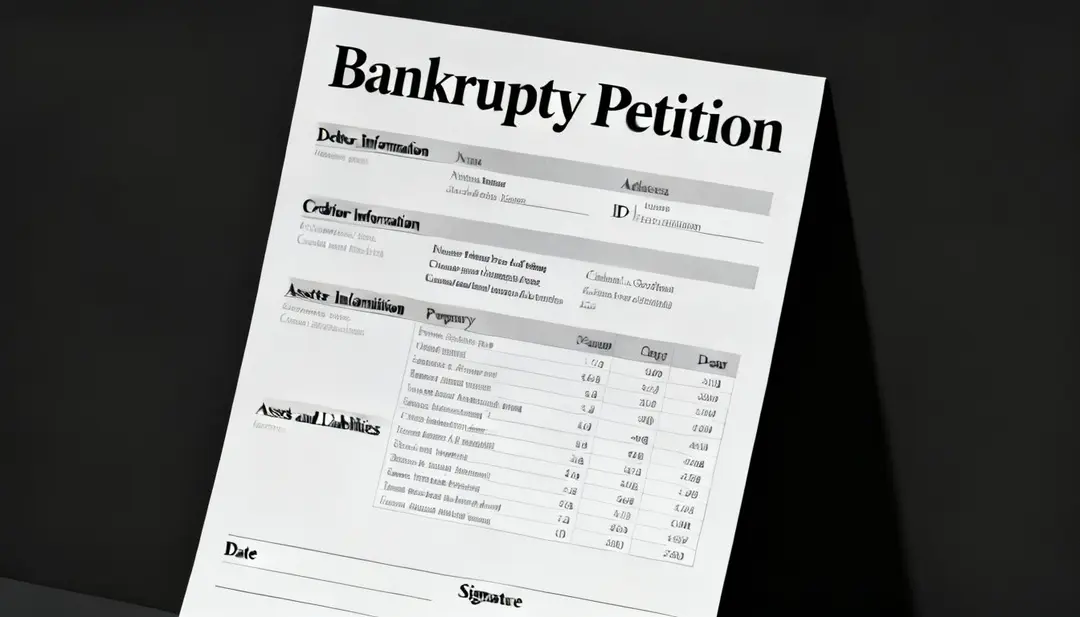In Arizona, where natural disasters such as wildfires and floods are not uncommon, an effectively tailored emergency response plan is imperative for Homeowners Associations (HOAs) to safeguard lives, properties, and maintain order amidst chaos. These plans are critical in reducing confusion, preventing unnecessary expenses, and minimizing the risks of fraud during and after a disaster. Specifically for Arizona HOAs, the disaster preparedness and response landscape demands a proactive approach to identify potential threats and establish comprehensive disaster recovery strategies tailored to each identified risk. Optimizing these strategies for disaster preparedness, emergency management, and leveraging community resources are essential steps toward ensuring the safety and security of residents.
Assessing Potential Disasters for Arizona HOAs
As we explore the process of fortifying Arizona’s HOAs for disaster preparedness, it is crucial to first conduct a comprehensive evaluation of the risks involved. This initial phase employs a thorough and varied methodology.
- Identifying Potential Threats: Begin by creating a prioritized list of all possible emergencies, such as earthquakes, floods, fires, and pandemics, specific to the Arizona environment. For each identified disaster, document a worst-case scenario alongside potential solutions, ensuring a well-rounded preparedness strategy.
- Infrastructure and Legal Considerations: Given the responsibility of HOAs in maintaining essential infrastructure like drainage systems and landscaping, regular audits are crucial. Moreover, understanding the legal landscape, including the Fair Housing Act and state laws, is vital to navigate potential litigation related to unpaid assessments or violations of CC&Rs and bylaws effectively.
- Community Engagement and Collaboration: Engaging with residents about risks and preparedness plans is as important as collaborating with local authorities. This dual approach enhances the effectiveness of flood management strategies and provides access to additional resources and funding.
In addition to the above steps, HOAs must focus on several critical areas to fortify their disaster preparedness and response capabilities:
- Emergency Response Team and Plans: Establish a dedicated team and develop comprehensive plans that include communication, evacuation, shelter-in-place strategies, and resource management.
- Training, Education, and Continuous Improvement: Regular training sessions and educational programs for residents and the emergency response team are essential. Equally important is the commitment to testing and refining these plans through continuous improvement efforts.
- Insurance, Financial Planning, and Legal Compliance: Ensure adequate insurance coverage, understand liability in disaster scenarios, and set aside funds through loans or special assessments for emergency responses. Compliance with state laws and regulations, including those specific to emergency response, is non-negotiable to avoid legal consequences and ensure community safety.
Through addressing these areas, Arizona HOAs can build a robust framework for disaster preparedness and response, tailored to their unique community needs and the challenges posed by the local climate and legal environment.
Creating a Comprehensive Disaster Preparedness Plan
Developing a detailed and thorough disaster preparedness strategy for Homeowners Associations (HOAs) in Arizona requires a meticulously structured approach that covers all facets of emergency readiness and response. This plan should integrate a variety of safety measures, risk assessment techniques, and crisis management tools to ensure that residents are well protected in the event of natural disasters or other emergencies.
Key components of this comprehensive strategy include establishing clear communication channels, formulating evacuation procedures, and conducting regular safety drills. Additionally, it is vital to collaborate with local emergency services and to keep all emergency plans updated and relevant to the specific risks associated with the region. This holistic approach to disaster preparedness will not only safeguard the physical infrastructure of the community but also enhance the resilience and security of its residents.
Coordination and Implementation
- Engage with Experts: Collaborate with professionals experienced in developing disaster plans and managing emergency events. Their expertise can provide invaluable insights into creating a robust preparedness strategy.
- Formalize the Plan: After finalizing the disaster preparedness plan, it’s crucial to adopt and implement it with formal training at the board level. This ensures that everyone understands their role and the procedures to follow during an emergency.
- Continuous Review: Regularly review the plan to ensure it remains current and reflective of the community’s immediate needs. This may involve updating contact information, resources, and procedures as the community evolves.
Components of the Disaster Preparedness Plan
- Comprehensive Documentation: Include critical elements such as a communication plan, emergency contacts, a detailed site plan, evacuation routes, copies of insurance policies, and a clear response or recovery strategy.
- Customization: Tailor the emergency plan to fit the unique characteristics of the association, considering factors like resident demographics and special features of the property.
- Community Education: Educate residents on how to respond to various disasters, including natural and man-made emergencies. This can range from earthquakes and floods to active shooter scenarios.
Practical Steps for Preparation and Response
Emergency Action Steps:
- Construct a site plan highlighting essential infrastructure points like lift stations and shut-off valves.
- Develop an evacuation plan with clear maps to shelters and list generator-powered gas stations and stores for essential supplies.
- Establish standard procedures for different emergency situations and provide clear instructions for debris management.
- Identify a designated meeting place for post-disaster check-ins and ensure all important contact information is easily accessible.
Insurance and Financial Preparedness:
- Keep updated copies of all insurance policies and understand the process for filing claims.
- Set aside funds specifically for emergency-related expenses and familiarize the board with the claims process.
Regular Drills and Updates:
- Conduct regular drills to test the plan, encouraging feedback from residents to refine and improve the procedures.
- Establish mutual aid agreements and participate in regional emergency coordination to enhance the community’s preparedness and response capabilities.
By adhering to these guidelines, Arizona HOAs can create a disaster preparedness plan that not only minimizes damage and disruption but also provides a clear path to recovery and rebuilding in the aftermath of a disaster.
Implementing Emergency Response Strategies
Implementing emergency response strategies within Arizona Homeowners Associations (HOAs) is a critical aspect of disaster preparedness and response.
Key Roles and Communication Channels:
- The HOA board president typically serves as the initial point of contact in an emergency, streamlining communication and decision-making processes.
- Essential contacts should include the property manager, attorney, local authorities, and insurance provider, ensuring all bases are covered from legal to logistical concerns.
- Designating a primary and secondary point of contact for communications is crucial, alongside developing templates for various platforms to expedite message dissemination.
Strategic Coordination and Safety Measures:
- A management company can provide invaluable training and experience in handling disasters, offering an extra layer of expertise and support.
- Establishing a safe location for residents to gather for important updates is vital, ensuring everyone knows where to go for information and assistance.
- Collaboration with local authorities and professional contractors is essential to assess damages and confirm the safety of the area before allowing residents to return home.
Community Education and Financial Preparedness:
- Educating residents on their roles during different disasters is key to a successful response, ensuring everyone knows what to do and where to go.
- Maintaining an updated operating budget with an adequate emergency fund is crucial, allowing for immediate access to resources needed for recovery and repair.
- Regular drills and updates to the emergency plan, based on feedback and evolving community needs, ensure preparedness measures remain effective and comprehensive.
Implementing these strategies not only protects lives and property but also fulfills legal requirements and ensures a coordinated response in times of crisis. Establishing a clear communication chain, maintaining up-to-date contact information, and investing in reliable communication tools are foundational steps towards a resilient community ready to face emergencies head-on.
Recovery and Damage Assessment
In the aftermath of a disaster, Arizona HOAs play a pivotal role in the recovery and damage assessment process.
Pre-Approved Vendors and Community Support:
- List of Pre-Approved Vendors: Maintain an up-to-date list of pre-approved vendors for immediate mobilization. This ensures quick and reliable service for physical recovery efforts.
- Community Helpers: Compile a database of residents who can aid those in need, such as the elderly or handicapped, and those with skills beneficial in recovery efforts. This fosters a sense of community and ensures everyone has the support they need.
Essential Documents and Key Contacts:
- Securely store essential documents and a list of key contacts in an easily accessible, yet secure location. This includes insurance policies, vendor contracts, and emergency contact numbers. Quick access to these documents is crucial for a swift response and recovery process.
Preliminary Damage Assessments (PDAs) and Digital Damage Surveys:
- Conducting PDAs: Follow a structured approach involving local damage assessment, state or tribal verification, joint PDA planning, conducting the joint PDA, and requesting a disaster declaration. This comprehensive assessment determines the magnitude of damage and impact, guiding the recovery strategy.
- Digital Damage Surveys: Utilize digital damage surveys available for state, local, tribal, and territorial partners during the Initial Damage Assessment (IDA) process. These tools, including FEMA’s damage assessment survey templates and the Field Assessment and Collection Tools (FACT) System, streamline the assessment process.
- Damage Assessment Training and Resources: Engage in Preliminary Damage Assessment Training and make use of Public Assistance (PA) and Individual Assistance (IA) Resources. This ensures the HOA is well-prepared to assess and respond to damage accurately.
In addition to this, establishing a Local Damage Assessment Planning Team and outlining a damage assessment plan are initial steps towards effective recovery. This plan should include gathering information, determining plan components and assumptions, identifying damage assessment zones, establishing local standards, and procedures for maintaining the plan. By adhering to these guidelines, Arizona HOAs can ensure a structured and efficient recovery process, minimizing the impact of disasters on their communities and facilitating a quicker return to normalcy.
Budgeting for Disasters and Recovery
In the context of disaster preparedness and response for Arizona HOAs, budgeting for disasters and recovery is a critical component that requires careful planning and strategic financial management.
Establishing an Emergency Fund
- Initial Funding: Start by allocating a portion of the HOA’s current budget to an emergency fund. This could be a percentage of the monthly fees or a fixed amount set aside each month.
- Long-term Contributions: Implement a policy for regular contributions to this fund, ensuring it grows over time and is capable of covering unexpected expenses.
- Investment Strategy: Consider investing a portion of the emergency fund in low-risk financial instruments that offer liquidity and stability, ensuring funds can be accessed quickly when needed.
Insurance Review and Adjustments
- Comprehensive Coverage: Regularly review insurance policies to ensure they cover all potential disasters specific to Arizona, such as wildfires and floods. This includes property damage, liability, and loss of income insurance.
- Deductibles and Premiums: Evaluate the trade-off between higher deductibles and lower premiums to optimize coverage while managing costs effectively.
- Special Assessments Insurance: Investigate the feasibility of obtaining special assessments insurance, which can cover the costs not included in the standard policy, minimizing financial impact on residents.
Financial Planning for Recovery
- Reserve Study: Conduct a reserve study to identify and anticipate future repairs and replacements, integrating these findings into the disaster recovery budget.
- Grants and Aid: Explore eligibility for federal and state grants, loans, and aid programs that can provide financial assistance in the aftermath of a disaster.
- Contract Negotiations: Pre-negotiate contracts with vendors for post-disaster services, securing favorable terms and ensuring swift action when needed.
By implementing these strategies, Arizona HOAs can establish a solid financial foundation that supports comprehensive disaster preparedness and response efforts. This approach not only safeguards the community’s assets but also ensures a quicker and more efficient recovery process, minimizing the financial strain on residents and the association alike.
Training and Drills
HOA board members play a crucial role in ensuring community safety during disasters. They must be well-versed in their responsibilities, the specifics of their insurance coverage, and the steps to take in various emergency scenarios.
Regular Drills and Training Sessions:
- Conduct drills at least twice a year to simulate different disaster scenarios, such as wildfires, floods, or earthquakes.
- Involve local emergency services to provide realistic training and feedback.
- Use these drills to test communication systems, evacuation routes, and the efficiency of the emergency response team.
Educating Residents:
- Host informational sessions to educate residents on what to do during different disasters. This could include how to shut off utilities, evacuation procedures, and how to use emergency supplies.
- Distribute emergency preparedness guides that detail the actions residents should take during specific disasters.
- Encourage residents to participate in drills and training sessions to familiarize themselves with the community’s disaster response plan.
Preventative Measures and Maintenance:
- Regularly inspect and maintain critical infrastructure such as roofs, chimneys, and retaining walls to prevent disaster-related damages.
- Implement landscaping practices like cutting brush back several feet from property lines and cleaning out gutters and drains to reduce fire hazards and flooding risks.
- Schedule professional inspections for chimneys and install screens to prevent animals and debris from creating blockages that could lead to fires.
In addition to this, associations should ensure that all preventative maintenance tasks are documented and scheduled regularly. This proactive approach not only aids in disaster prevention but also ensures that the community is always prepared for unexpected events. Engaging residents in these processes fosters a culture of preparedness and resilience, making the community a safer place for everyone.
For HOA board members and community managers seeking to navigate these challenges effectively, the importance of expert guidance cannot be overstated. Addressing these issues proactively can prevent costly disputes and protect the well-being of residents. If your HOA is looking to evaluate or improve its flood management strategies, or if you’re facing legal concerns regarding your current practices, we invite you to schedule an initial consultation with us. Our expertise in HOA law and community management can provide you with the insights and support needed to safeguard your community against the unpredictable and often severe impacts of Arizona’s monsoon season. Visit our Contact Us page to schedule an initial consultation with our experienced HOA attorneys.
Halk, Oetinger, and Brown shares this article for informational purposes only, and it does not create an attorney-client relationship.













